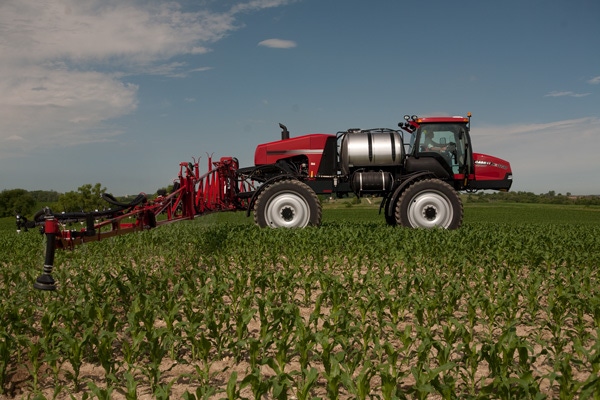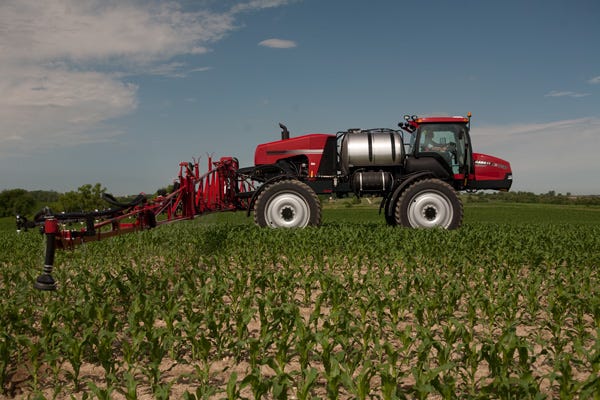April 20, 2015

Last week was a busy week. For the most part, we've missed much of the forecast rains lately. As I type Monday, a light rain is falling. A handful of farmers took advantage of the nice weather and put a few seeds in the ground late last week and tested planters. We will start as soon as it dries out.
An inverse of last year, I was able to get all the soybean acreage sprayed in the last half of the week. We apply burndown and residual chemistries that we will incorporate (work lightly) and plant in the next few weeks.
Related: Cold temperatures and applying burndown herbicides

Auto-swath controls have reduced over-spray to about 1%. (Case IH Patriot 3230 Sprayer file photo)
Growing non-GMOseed, there aren't really any good chemistries (with season long residual) that you can spray after the beans emerge. Waiting until fields had been planted led me to spray fields in the mud last year. I was forced to spray another after dark as winds prevented spraying for three consecutive days. (Winds usually calm at dusk.) Neither was my idea of fun.
Planting intentions
I was asked a couple of week ago about planting intentions – corn vs soybeans. As I finished spraying Saturday evening, I realized the guesstimate of product I ordered in December actually matched the acres we have intended at this point. This was a complete coincidence as I had not reviewed the order since it was placed. So it appears our intentions are unchanged from late last fall. The only downside of finishing this work may be that those acres are now locked into soybeans.
Another thing I noted was the accuracy at which we can apply product. This is the third year we have had auto-swath controls on the sprayer. I knew it was better than dropping foam and manually turning the boom sections on and off. However, I had never done a true comparison. After spraying more than 1,300 acres, my over-spay was about 1%.
Related: Sprayer buying tips for 2015 crop year
In the past, there were a few fields were I would plan on an extra 10% of solution to cover point rows and odd shaped areas. Technology is certainly paying its way in this area. The sprayer is also paying its way as we are able to purchase the crop protection products from the least-cost provider.
Other activities accomplished last week included laying strips in fields so they are ready to plant, hauling and spreading chicken litter, and receiving delayed seed shipments.
We are now ready to hit the fields and plant.
The opinions of Kyle Stackhouse are not necessarily those of Farm Futures or the Penton Farm Progress Group.
Are you confident in preparing your sprayer for the season ahead? Do you know how to best minimize herbicide spray drift? Brush up with our free report, Best Practices For Spraying: Get The Most Out Of Your Sprayer
About the Author(s)
You May Also Like






